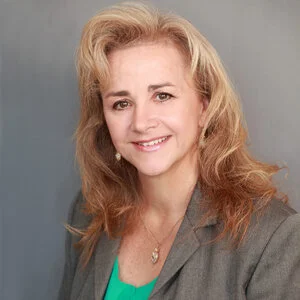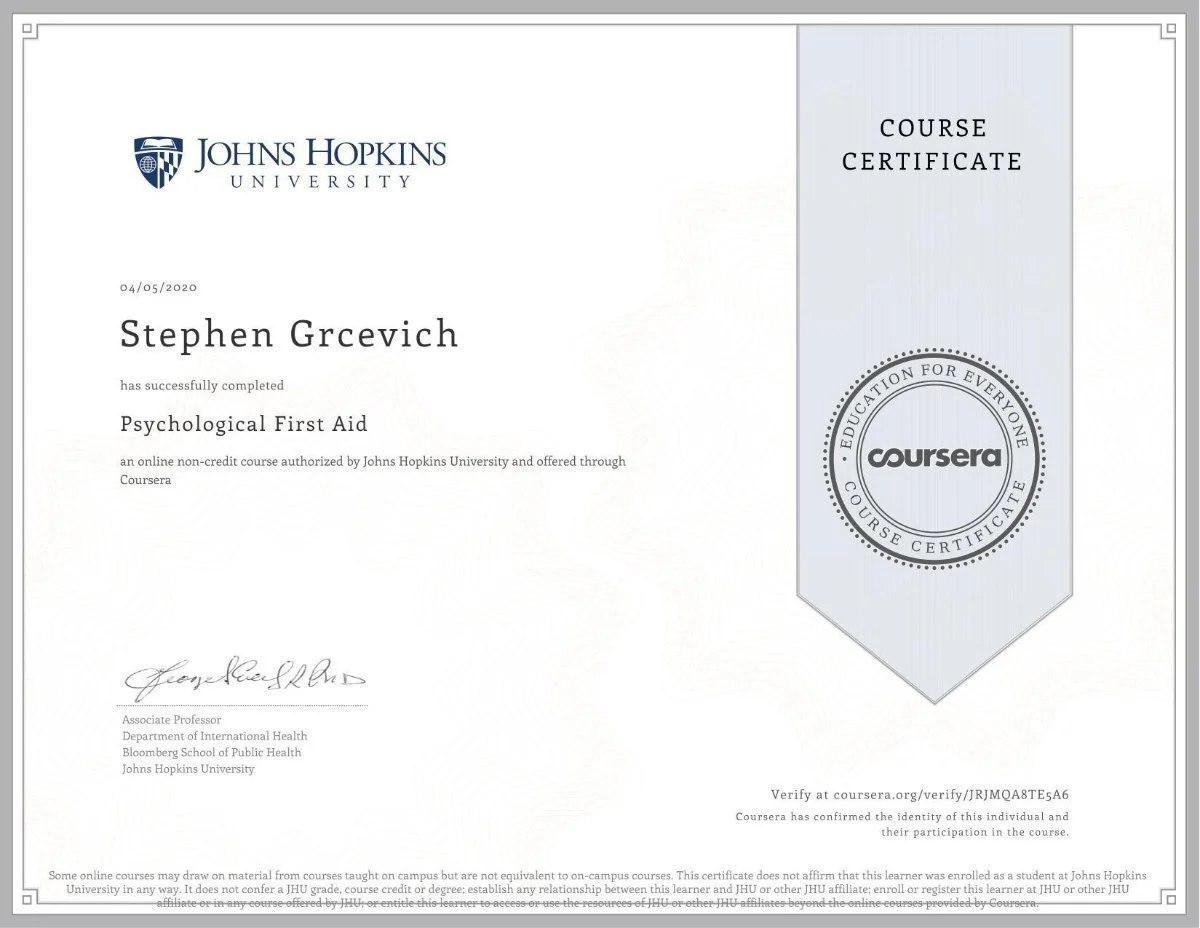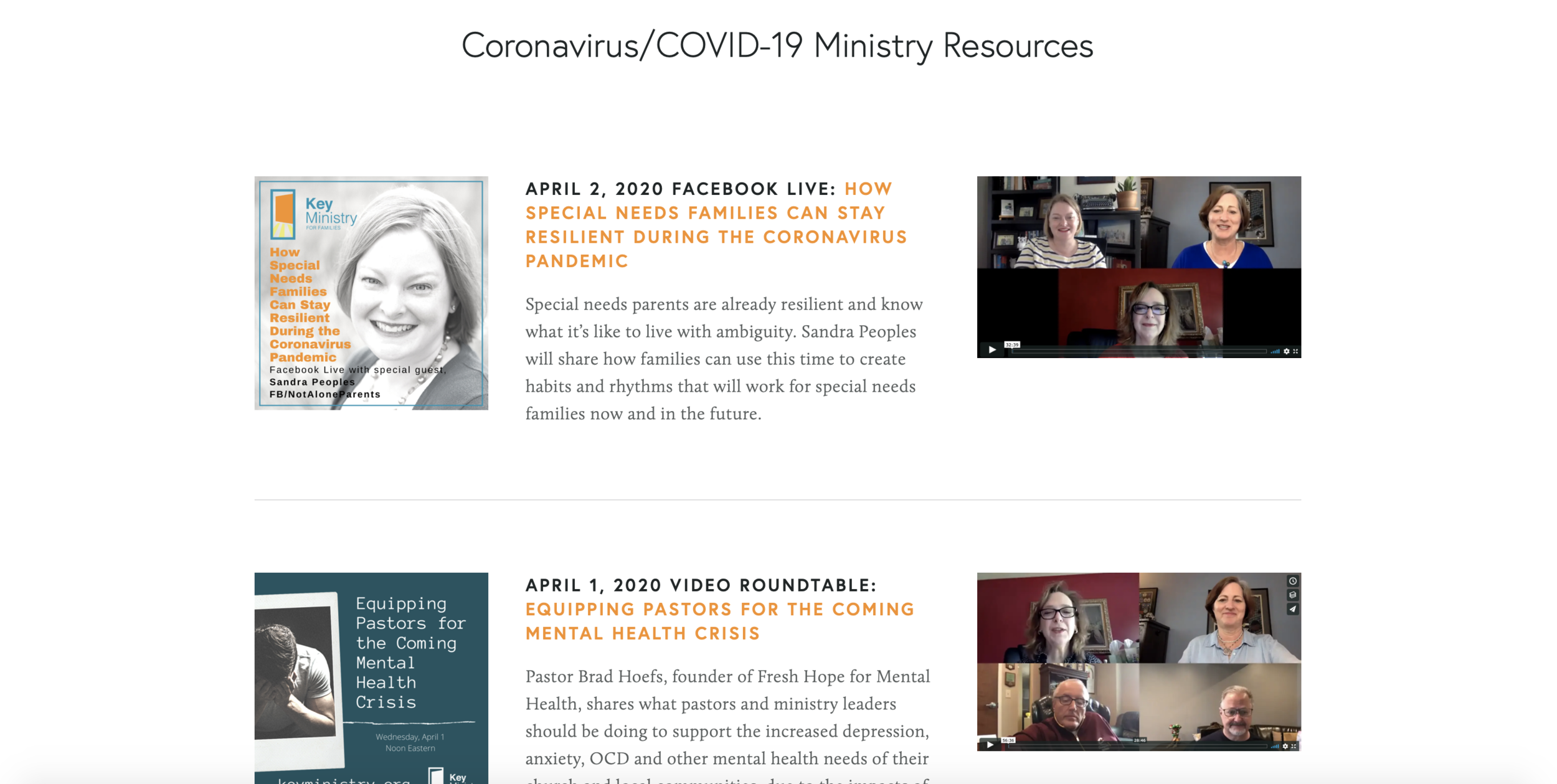How can the people of God provide the most tangible care and support to their friends and neighbors in the midst a long and drawn out medical and mental health crisis?
For the last couple of weeks, our team has been wrestling with the short and long-term mental health implications of COVID-19. We know churches are the first place many will turn to in the days and weeks ahead as life becomes more difficult. Even the American Psychiatric Association (APA) recognizes that pastors and other faith leaders serve as gatekeepers or “first responders” when individuals or family members experience mental health problems. One recommendation of the APA that we have echoed in our work with churches is for pastors and lay leaders to learn more about the basics of mental health conditions and appropriate responses through programs such as Mental Health First Aid (MHFA).
Our team came up with the idea of providing an online mental health first aid course for churches and lay leaders around the country. We reached out to a highly respected organization led by a pastor who is a national trainer for MHFA and a contact within the Partnership Center of the U.S. Department of Health and Human Services to brainstorm the necessary steps to make the training happen.
The unprecedented situation in which our country finds itself is bringing to light many vulnerabilities in our disaster relief system. We quickly discovered that no remote training option exists for MHFA, and live trainings are precluded by orders issued by most state governments against gatherings of ten or more people. The same orders have caused churches to close, leaving staffs scattered and pastors under extraordinary strain, having to completely rethink their methods of doing ministry while managing feelings of helplessness from their inability to provide their customary care for the sick and dying during the pandemic.
We’ve concluded that the rapidly mounting support needs emerging as a result of the social isolation, quarantine, economic and job losses from steps taken to mitigate COVID-19 will require an entirely different approach than people are accustomed to from their churches – an “all hands on deck” response from all of God’s people far exceeding the capacity of our pastors and church staff alone.
Dawn Skaggs is a national expert on disability inclusion in emergency management who planned to offer a workshop at our now canceled conference on the church’s role in disaster preparedness. She also serves as a psychological first aid mentor for a course offered through Johns Hopkins University School of Medicine that represents an outstanding resource for pastors, church staff and individual Christians who want to be better prepared to care for and support their neighbors in the days and weeks ahead.
Psychological first aid (PFA) is a concept similar to physical first aid for coping with stressful and traumatic events in crisis situations and at disaster sites. PFA was partially funded by the U.S. Centers for Disease Control and is recommended or endorsed by the Institute of Medicine, the National Institute of Mental Health, the American Red Cross, and the American Psychiatric Association. Psychological first aid may be defined as a compassionate and supportive presence designed to mitigate acute distress as well as to facilitate access to continued care. The approach taught at Johns Hopkins was developed in response to trauma experienced by soldiers and military personnel during the Kuwait War and further refined following the attacks on the Twin Towers and the Pentagon on 9/11.
I first heard about psychological first aid from Dawn during a ministry idea share our team conducted last Monday. I was able to complete the free, seven module online course in five days while maintaining my child psychiatry practice in the midst of an unusually busy week of trainings and responsibilities for Key Ministry. Having personally gone through the course, here’s why I’d recommend it to any pastor or church leader interested in quickly building capacity to care for large numbers of hurting people during the pandemic.
Psychological first aid is a skill set anyone can master – it was intended for persons with no training or experience in the mental health field whatsoever. It’s not treatment. It’s better characterized as a means of helping people rebound from adversity through fostering necessary resilience to function in the midst of adverse circumstances.
Psychological first aid was specifically designed to respond to surges in needassociated with natural disasters and other traumatic events. It is most effectively implemented by people familiar with available supports within their local communities.
Psychological first aid offers practical ideas for responding in conversations with people experiencing COVID-19 related distress or loss. Spouses and children unable to comfort loved ones who are sick or dying in hospitals or other care facilities. Men and women who have lost their jobs or businesses. College students separated from peer support while facing an uncertain future. Healthcare workers who watch the sick die alone while knowing they themselves are at great risk of contracting the virus and experiencing a similar fate.
Psychological first aid provides a framework for helping people tap into their faith to cope with the realities of their immediate situation.
Psychological first aid serves a vital triage function in identifying persons most in need of medical, mental health or spiritual support and optimizing the ability of healthcare professionals and pastoral care to help the most people with limited resources.
Christians run to, and not away from neighbors in distress. One factor contributing to the growth of the early church was the self-sacrifice demonstrated by Christians who stayed in the cities to care for victims of the plagues that periodically ravaged the Roman Empire during the second and third centuries. Eighteen centuries later, we’re blessed to have an advanced healthcare system capable of helping the vast majority of people infected by the coronavirus to experience a full and complete medical recovery. The system isn’t remotely prepared to care for all of the people who will be incapacitated by anxiety, depression or PTSD in the weeks and months to come.
How will the Christians of the 21st Century church respond to the victims of this pandemic?
Click here to learn more about or to enroll in the free course in psychological first aid offered by Johns Hopkins University through Coursera.
***********************************************************************************************************
Our team at Key Ministry has assembled a resource center for churches and families to access during this time regarding COVID-19. Find trainings and resources created by our team, along with the U.S. Department of Health and Human Services Faith-Based Partnership Center, the Centers for Disease Control, Saddleback Church and others. Check it out today.







